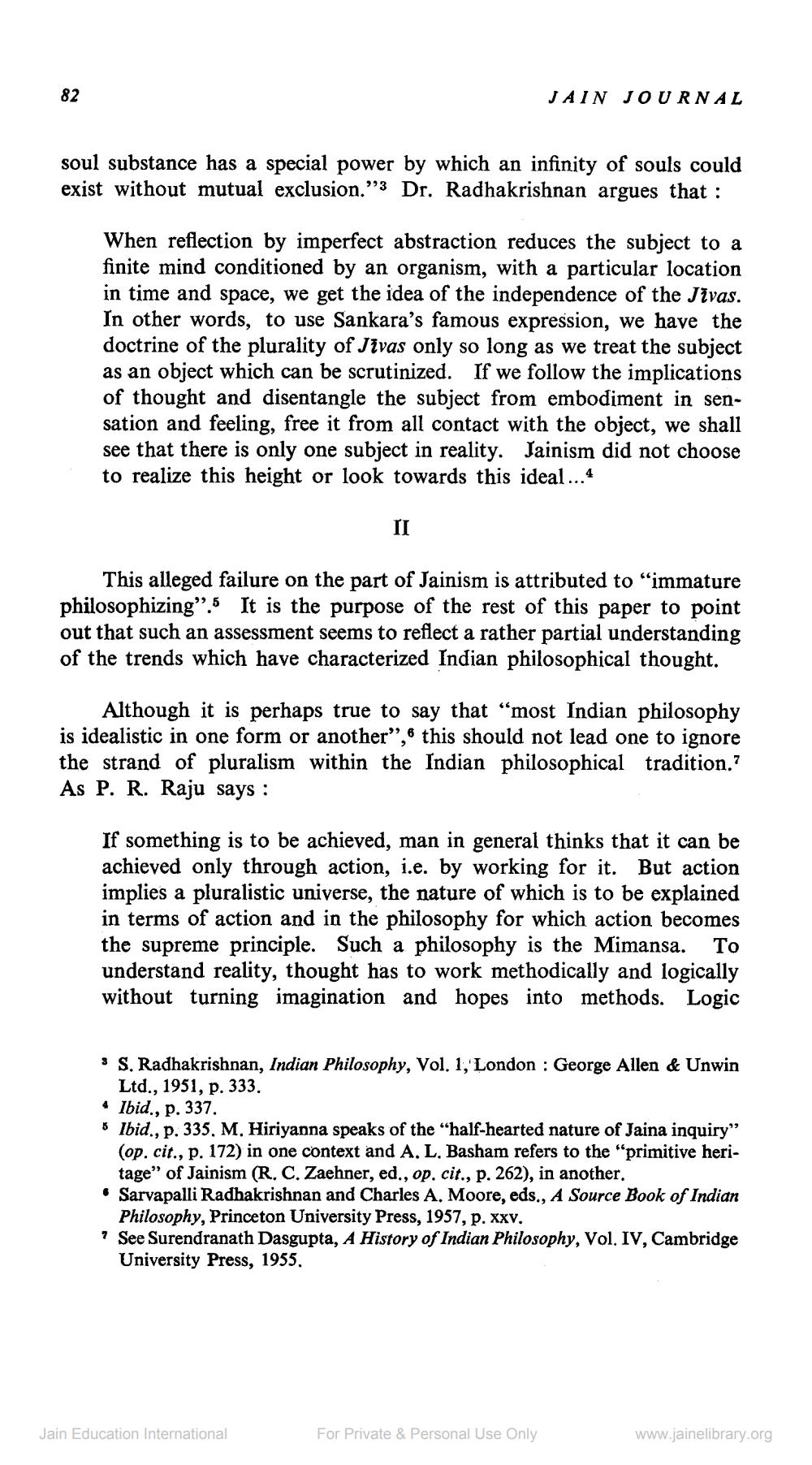Book Title: Jain Journal 1981 01 Author(s): Jain Bhawan Publication Publisher: Jain Bhawan Publication View full book textPage 5
________________ 82 soul substance has a special power by which an infinity of souls could exist without mutual exclusion."3 Dr. Radhakrishnan argues that: When reflection by imperfect abstraction reduces the subject to a finite mind conditioned by an organism, with a particular location in time and space, we get the idea of the independence of the Jivas. In other words, to use Sankara's famous expression, we have the doctrine of the plurality of Jivas only so long as we treat the subject as an object which can be scrutinized. If we follow the implications of thought and disentangle the subject from embodiment in sensation and feeling, free it from all contact with the object, we shall see that there is only one subject in reality. Jainism did not choose to realize this height or look towards this ideal...* JAIN JOURNAL II This alleged failure on the part of Jainism is attributed to "immature philosophizing".5 It is the purpose of the rest of this paper to point out that such an assessment seems to reflect a rather partial understanding of the trends which have characterized Indian philosophical thought. Although it is perhaps true to say that "most Indian philosophy is idealistic in one form or another", this should not lead one to ignore the strand of pluralism within the Indian philosophical tradition." As P. R. Raju says: If something is to be achieved, man in general thinks that it can be achieved only through action, i.e. by working for it. But action implies a pluralistic universe, the nature of which is to be explained in terms of action and in the philosophy for which action becomes the supreme principle. Such a philosophy is the Mimansa. Το understand reality, thought has to work methodically and logically without turning imagination and hopes into methods. Logic Jain Education International * S. Radhakrishnan, Indian Philosophy, Vol. 1, London: George Allen & Unwin Ltd., 1951, p. 333. • Ibid., p. 337. Ibid., p. 335. M. Hiriyanna speaks of the "half-hearted nature of Jaina inquiry" (op. cit., p. 172) in one context and A. L. Basham refers to the "primitive heritage" of Jainism (R. C. Zaehner, ed., op. cit., p. 262), in another. • Sarvapalli Radhakrishnan and Charles A. Moore, eds., A Source Book of Indian Philosophy, Princeton University Press, 1957, p. xxv. ? See Surendranath Dasgupta, A History of Indian Philosophy, Vol. IV, Cambridge University Press, 1955. For Private & Personal Use Only www.jainelibrary.orgPage Navigation
1 ... 3 4 5 6 7 8 9 10 11 12 13 14 15 16 17 18 19 20 21 22 23 24 25 26 27 28 29 30 31 32 33 34 35 36 37 38 39 40 41 42 43
